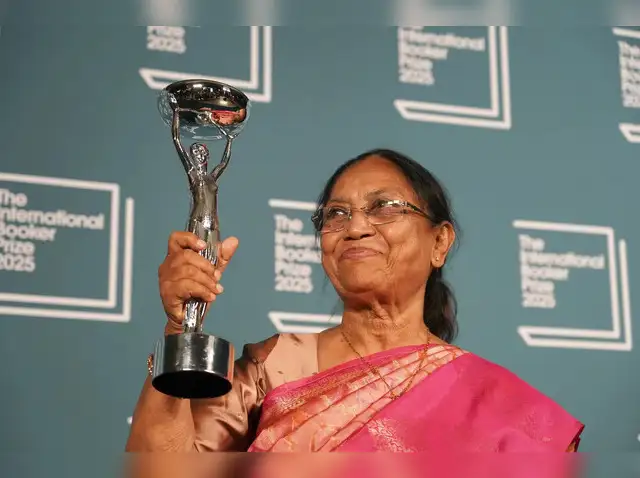In a historic triumph, Kannada writer Banu Mushtaq and translator Deepa Bhasthi have won the 2025 International Booker Prize for Heart Lamp, a poignant short story collection that became the first Kannada work and first short story anthology to claim the prestigious £50,000 award. Announced on May 20 at London’s Tate Modern, the win has electrified Karnataka’s literary circles and put Indian regional literature on the global map, with leaders like Congress president Mallikarjun Kharge hailing it as a “powerful advocacy” for harmony and secularism. As Heart Lamp garners international acclaim, Mushtaq’s tales of resilience against patriarchy signal a transformative moment for marginalized voices.
Heart Lamp, or Hridaya Deepa in Kannada, comprises 12 stories written between 1990 and 2023, chronicling the lives of Muslim women in southern India navigating oppressive traditions. Mushtaq, a 76-year-old lawyer, activist, and journalist from Hassan, Karnataka, drew inspiration from her legal work, where women shared stories of domestic struggles and religious conservatism. “Some women don’t know why they suffer,” Mushtaq said, reflecting on the daily injustices that shaped her narratives. Translator Deepa Bhasthi, based in Kodagu, crafted a radical English rendition, praised by judge Max Porter for its “plurality of Englishes” that captures Kannada’s raw urgency.
The win marks several firsts: the first Kannada title and short story collection to secure the Booker, a feat celebrated by Karnataka Chief Minister Siddaramaiah, who said Mushtaq “raised the flag of Kannada’s greatness.” Posts on X echoed the pride, with fans calling Heart Lamp a beacon for Muslim women’s resilience. The collection, rooted in the Bandaya (rebel) literary tradition, tackles caste, class, and gender with unflinching honesty, setting it apart from five shortlisted titles, including Danish and Italian works. Its global resonance lies in its universal portrayal of quiet rebellion against patriarchal systems.
Mushtaq’s journey adds depth to the triumph. Born in 1948 into a traditional Muslim family, she faced pressure to wear a burqa and focus on domestic chores after a love marriage, experiences that mirror her characters’ struggles. Her career—spanning journalism at Lankesh Patrike, radio work, and women’s rights advocacy—infuses Heart Lamp with authenticity. Critics question whether the Booker’s focus on translated fiction risks overshadowing regional works in their original languages, yet Mushtaq’s win, following Geetanjali Shree’s Tomb of Sand, cements non-English Indian literature’s rising prominence.
The prize, split equally between Mushtaq and Bhasthi, is expected to boost Heart Lamp’s sales, with Penguin Random House India’s edition likely to follow the 442% sales surge of 2024’s winner. Kannada film industry figures like Raj B Shetty and Hombale Films joined the chorus of congratulations, signaling cultural pride. “Literature lets us live inside each other’s minds,” Mushtaq said in her acceptance speech, a sentiment resonating with readers worldwide.

